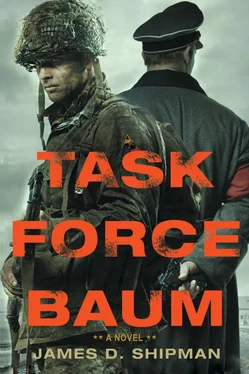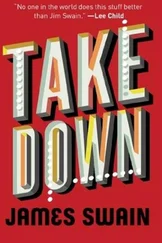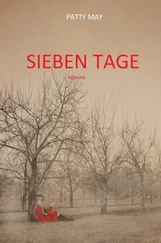That thought reignited his anxieties. He decided to engage Stiller in some conversation, both to assuage his fears and to answer his apprehensions directly. He already wanted another drink of the schnapps, but he knew he would have to wait for that.
“Sir, I have a question for you.”
“Shoot, kid.”
I’m not your kid . “What is actually going to happen when we reach the camp?”
“What do you mean?” Stiller looked over at him for a second, and understanding filled his face. “Oh, you’re wondering what kind of shit are we getting ourselves into?”
Hall nodded.
“Well, I don’t rightly know for sure. A bit more than what we’ve seen so far, I suspect. Course we won’t likely be riding into battle either.”
Hall hadn’t expected that. “Why not?”
“We’ll need to support the tanks and the infantry. There will probably be an MLR. You can’t roll into one of those in an open-air jeep. Not if you want to stay alive, you don’t.”
“MLR?”
“Main line of resistance. So far, we’ve been plowing through towns. There’s been a road right through the middle, and the krauts haven’t really had any time to prepare. Even if they barricaded it, the Shermans just drove on over. This camp will be different. There’ll be trenches maybe. Sandbags and machine-gun nests. Even artillery and tanks. If the Germans know where we’re going, and they’re prepared, it’s going to be a hell of a lot hotter at the camp. But that’s okay; we’ll be going in fast and on foot.”
“Sir, I don’t have any experience in infantry assaults.”
“Bah. Don’t worry about it. I do. We’ll be hugging the Shermans close and moving fast. Just stay behind the tanks and stick close to me. We should be able to get in there just fine without taking a hit.”
“What about once we are in the camp?”
“Simple. Gotta find Patton’s son-in-law.”
“How?”
“Shouldn’t be too tough. There’s only supposed to be a couple hundred people in there, remember? We’ll ask around and nab him. Once we have him, though, we must avoid any combat on the way out. We sit tight until the camp is secure, then we walk him out together, weapons drawn. Nobody gets near him. It won’t do us any damned good to get all the way there and then find him dead. You got it?”
“Sure, sir. What about the rest of the prisoners?” Hall didn’t give two shits about the POWs, but he felt the need to keep the conversation going just now.
Stiller nodded his head behind him, pulling out a chewed-up plug of tobacco as he did so and flinging it in the back seat. “That’s what all the half-tracks are for. Should be able to get everybody. Patton’s not a selfish son of a bitch. He’s not just after family. We’ll get our boys out of there.”
Hall didn’t ask any more questions. Now that they were over the river, the column was making rapid progress. There was no resistance at all. Hall thought of that plane that kept stalking them. He’d expected an ambush already. He wondered if the Germans were too weak or too far away? Was it possible they would enter a lightly defended camp and then get out before any meaningful enemy arrived? Stiller seemed to think so, but then again, what did he really know?
“Hall, what the hell are you doing?” Stiller’s sharp question drew him out of his reverie.
“Nothing, sir,” he responded somewhat lamely.
“Keep eyes sharp. This is no time for daydreaming.”
“Yes, sir,” said Hall. He wondered if anybody would know or care when Stiller got home. He imagined the major arriving in his hometown alone. Some dusty bit of Texas nowhere. The thought warmed him immensely.
“How many clips you got left for that Thompson?” asked Stiller.
Hall checked. “Three left.”
“Shit, kid. I guess it can’t be helped, but you can’t use any more until we get to the camp. We may need it.”
“What if we have to defend ourselves before we get there.”
“Duck,” said Stiller. “And let the Shermans do their work. You just hold on to those bullets until we hit the Oflag… Damn it!” The major’s voice jumped several octaves.
Hall looked and followed Stiller’s eyes, trying to figure out what had so rattled the major. Then he saw it, and cold fear froze his heart. The convoy was just rounding a bend, and the lead vehicles were already grinding to a halt. The road ahead and the hills on both sides were crawling with Germans. Thousands of them. Ignoring the major’s order, Hall whipped his Thompson around and raised the site, taking vague aim at a thick cluster of the enemy. There were far too many. The lieutenant waited for the chirping flashes of the enemy rifles and the bullets that would end his dreams.
Gemünden, Germany
March 27, 1945, 1000 hours
The sky. Koehl blinked, his eyes examining the gray cloud cover. Something was important about the heavens, but he couldn’t think just now what it was. He heard a screeching ring in his ears, the volume rising and ebbing with each beat of his heart. A head appeared above him, staring down with eyes and forehead creased in concern. It was Schmidt. The sergeant mouthed something to him, but the Hauptmann couldn’t hear the words through the drowning hum.
The explosion. Images flooded him. The trap, the bridge, the failure. The Americans fleeing away and the lone Sherman belching fiery death across the Main. Then the darkness. He’d been hit. Or had he? His entire body felt squeezed and pulverized as if he’d been pressed through a serrated tube. He moved his legs, his arms. Everything seemed to be working. Schmidt still stood over him, mouthing away. Koehl blinked and shook his head, trying to drive the high-pitched song from his brain. He raised a hand and waved it, gesturing for Schmidt to help him up. The sergeant shook his head. Koehl motioned again, more insistently this time. Schmidt shrugged and extended his hand, grasping his commander and pulling him with one motion to his feet. The Hauptmann fought a wave of dizziness. He stumbled, taking a couple of steps, and then found his balance. After a moment, he felt stable on his feet, although the terrible ringing would not recede.
“Are you all right?” shouted Schmidt.
“Where is the Sherman?”
“Gone, sir,” Schmidt shouted. “Left with the rest.”
Koehl nodded to show he understood. “Bring me the engineer.”
The sergeant’s face registered surprise. He shook his head again. “Time for that later, sir. You need a hospital.”
“Bring him,” Koehl repeated, his voice tinged with iron. He was probably screaming through the roar in his ears, but he didn’t care. “Now, Schmidt.”
The sergeant hesitated for a second and then nodded. He turned and gave commands to another soldier, who took off toward the infantry position. Koehl stepped over to his Ferdinand. The armored vehicles had rumbled back into the park with the Americans’ departure. He leaned both elbows on the base, resting and fighting against the vertigo. A few minutes later, he saw the messenger returning with an NCO in tow.
The sergeant for assault engineers stood at attention before Koehl. The man was papier-mâché with a hard veneer; the captain was sure he could crush him with a single downward swing of his fist. The soldier’s face was pale and his eyes wide. He must have been forewarned .
“You are the man who blew the bridge?” the captain asked, trying to control his brimming fury.
“ Jawohl ,” the sergeant answered without looking up.
“Did you receive my order to leave the structure intact?”
“I did sir, but—”
“Speak up! I can’t hear you!”
Читать дальше












